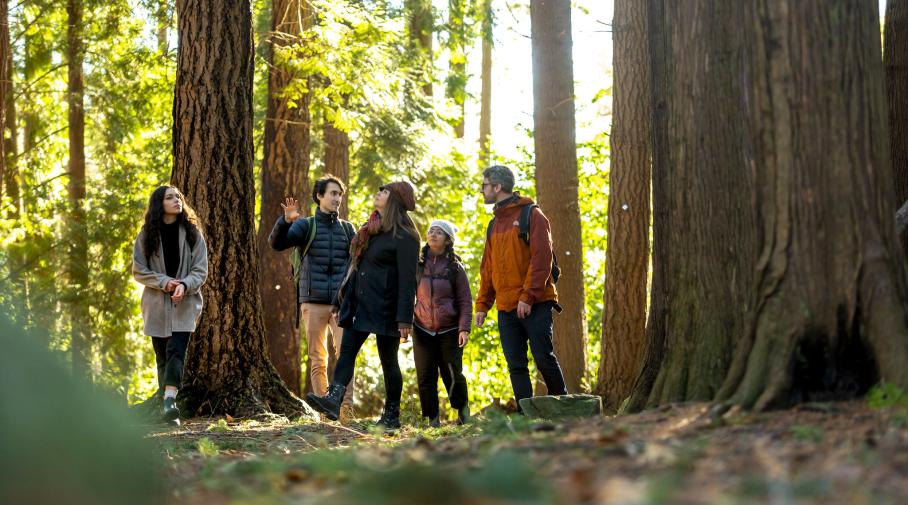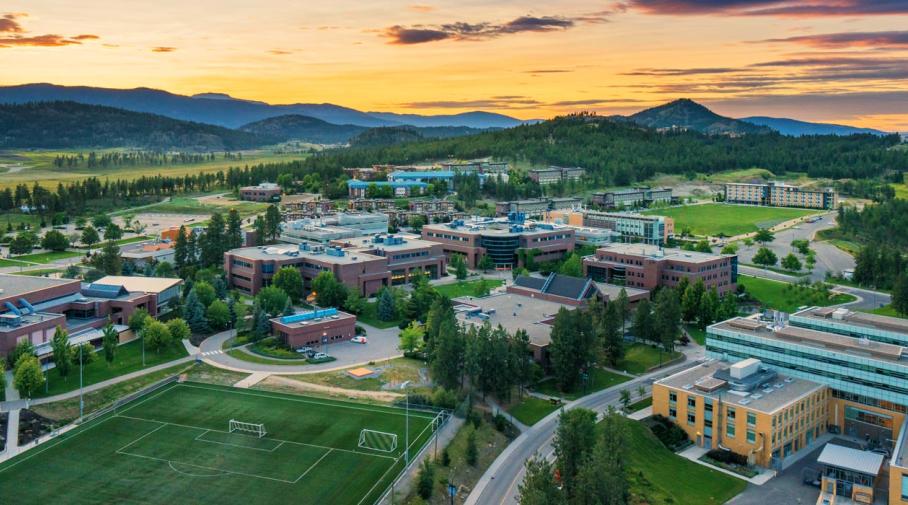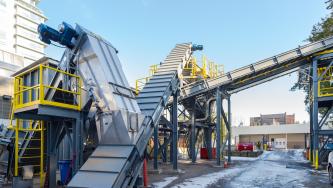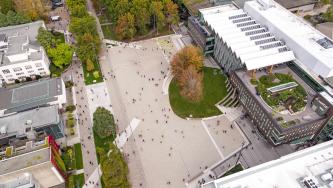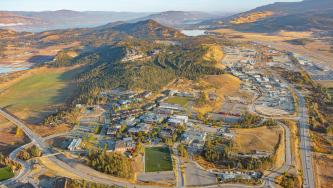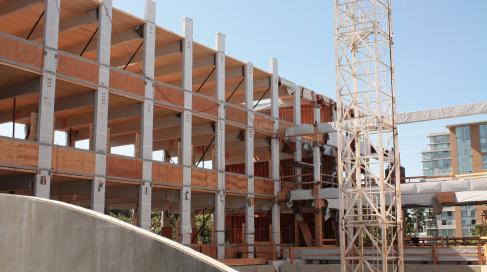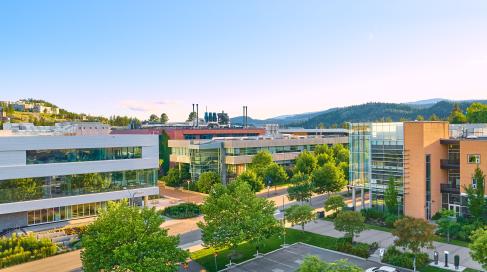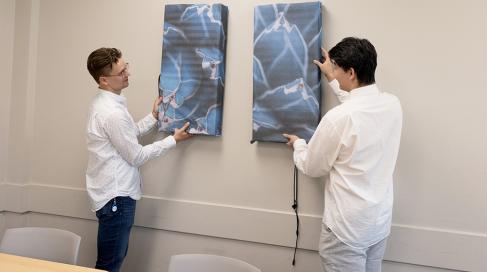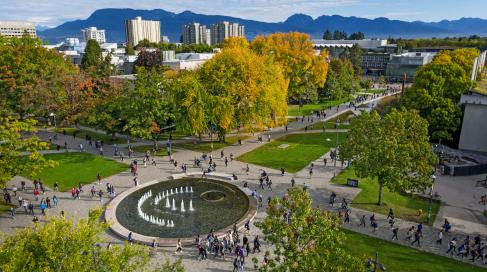Projects
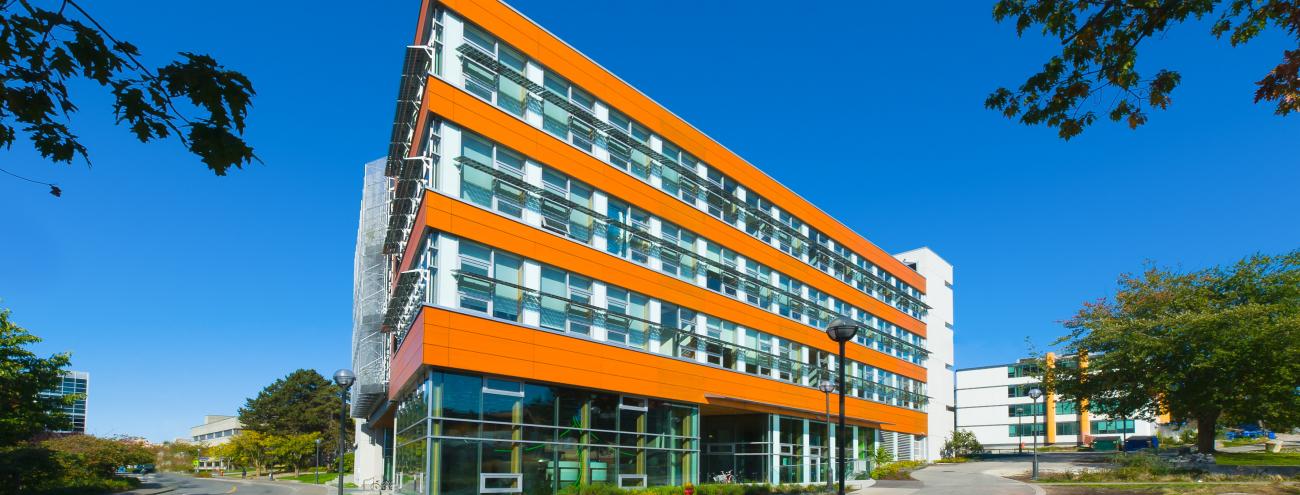
Piloting the future
Campus as a Living Lab projects use UBC infrastructure, assets and resources to support innovative and applied research projects that improve our communities, region and world. They pilot new ideas, advance faculty research and interdisciplinary collaborations, have an operational benefit for the university, and create opportunities for student learning and knowledge exchange.
These projects link research to action. They include large-scale innovative capital projects with strong research programs, academic-industry partnerships advancing R&D for new technologies, specialized applied research programs within a variety of disciplines, real-world scale research infrastructure supporting a broad range of academic research and operational benefits, and innovative student learning opportunities and programs.
Find out more about these projects, and what we are learning from them.
Project Library
Click here for the English version.
Le projet « Les voies vers un carbone intrinsèque net zéro dans les bâtiments » (Pathways to Net-Zero Embodied Carbon in Buildings) est un projet de deux ans dirigé par le Sustainability Hub de l’Université de la Colombie-Britannique (UBC). Il vise à cerner et relever les défis liés à la réduction des émissions de carbone intrinsèque des matériaux de construction, dans le cadre de l’objectif du Canada d’atteindre la carboneutralité d’ici 2050.
Ce projet s’appuie sur les initiatives du campus de l’UBC en tant que laboratoire vivant (UBC Campus as Living Lab), tel que le projet Brock Commons Tallwood House, qui comprenait la réduction potentielle des émissions de carbone intrinsèque liées aux structures en bois massif, ainsi que le projet pilote sur le carbone intrinsèque qui a informé la politique de l’UBC en matière de carbone intrinsèque.
Afin d’appuyer le mandat du Groupe consultatif pour la carboneutralité du Canada en matière de recherche, ce projet a été réalisé avec l’appui financier du gouvernement du Canada. Le financement a été fourni par le Fonds d’action et de sensibilisation pour le climat du Fonds pour les dommages à l’environnement, administré par Environnement et Changement Climatique Canada. Le Groupe consultatif pour la carboneutralité est un groupe d’experts canadiens qui conseille le ministre de l’Environnement et du Changement Climatique sur les priorités et les approches à adopter pour que le Canada atteigne son objectif de zéro émission nette d’ici 2050.

Appuyez ici pour la version en français.
The Pathways to Net-Zero Embodied Carbon in Buildings project is a two-year project led by the Sustainability Hub at the University of British Columbia (UBC). It aims to identify and tackle the challenges of reducing embodied carbon emissions in building materials as part of Canada’s path to net-zero GHG emissions by 2050. This project builds on the UBC Campus as Living Lab projects, particularly Brock Commons Tallwood House–which included the potential reduction in embodied carbon emissions from mass timber structures–and the subsequent Embodied Carbon Pilot, which informed UBC embodied carbon policy.
To support the mandate of Canada’s Net-Zero Advisory Body related to research, this project was undertaken with the financial support of the Government of Canada. Funding was provided through the Environmental Damages Funds’ Climate Action and Awareness Fund, administered by Environment and Climate Change Canada. Net-Zero Advisory Body is a group of Canadian experts advising the Minister of Environment and Climate Change on priorities and approaches for Canada to achieve its 2050 net-zero goal.

This project focuses on optimizing energy efficiency in UBC Okanagan’s legacy buildings through innovative and cost-effective modeling, improving the district energy system to cut greenhouse gas emissions and set a scalable example for sustainable building practices.
A pioneering project seeks to improve indoor air quality through the use of innovative wall-mounted Aerosol Removing Tapestry (ART) devices. These units effectively reduce harmful airborne particles and pathogens while improving energy efficiency. The project evaluates their performance, with potential applications in diverse settings such as classrooms, homes, and hospitals, extending beyond UBC Okanagan.
This visionary project at UBC Vancouver focuses on enhancing campus resilience in response to climate hazards, aligning with the Campus Vision 2050 Plan. It will develop a resilience hub framework to strengthen community connections and emergency support, and create a disaster risk reduction roadmap to improve UBC’s operational response to climate emergencies.
(clickable thumbnails below)

